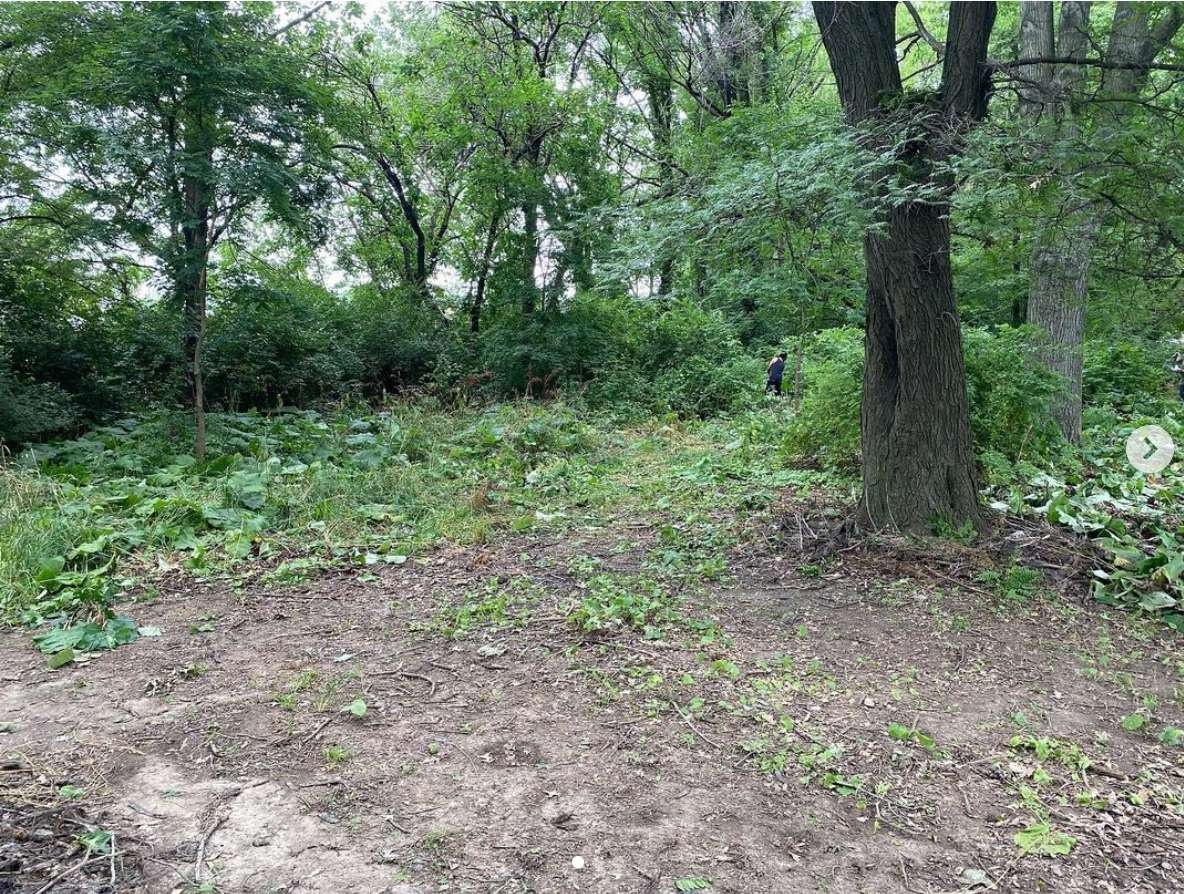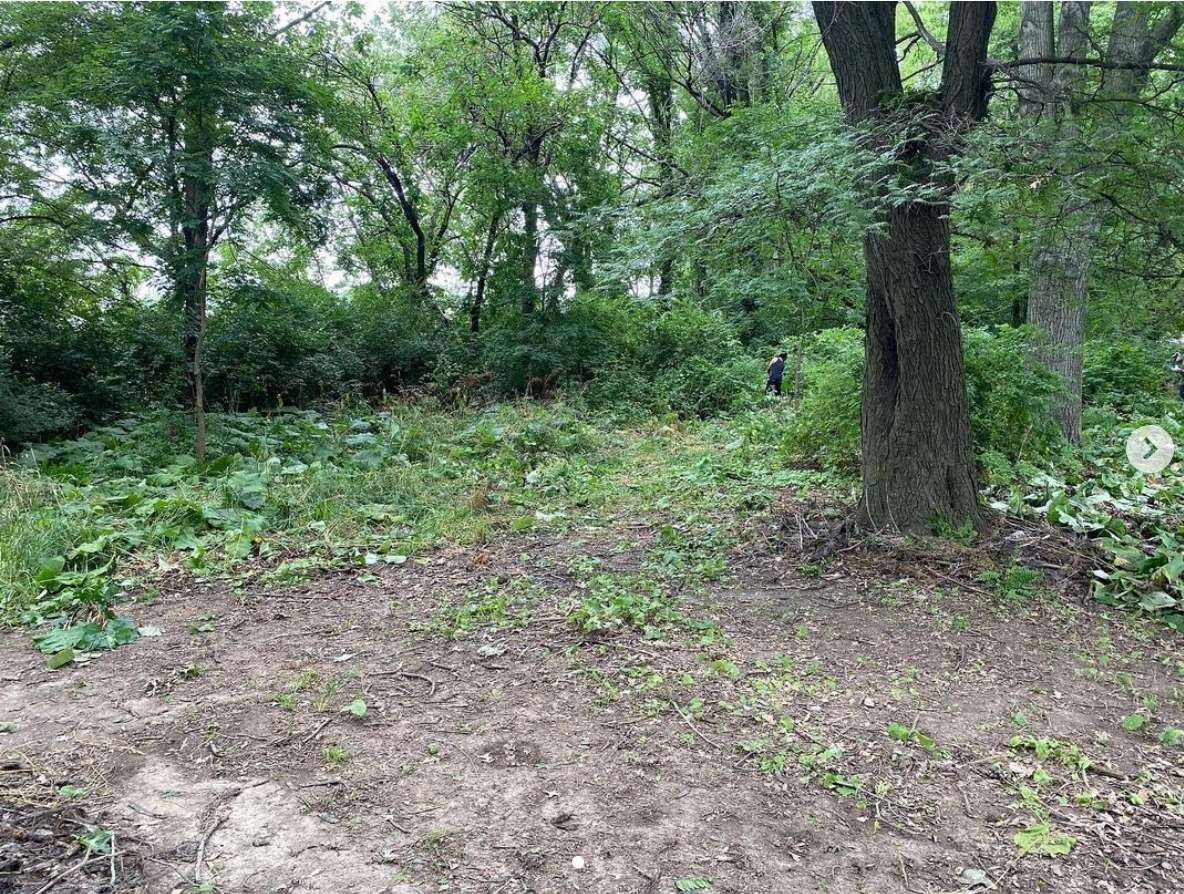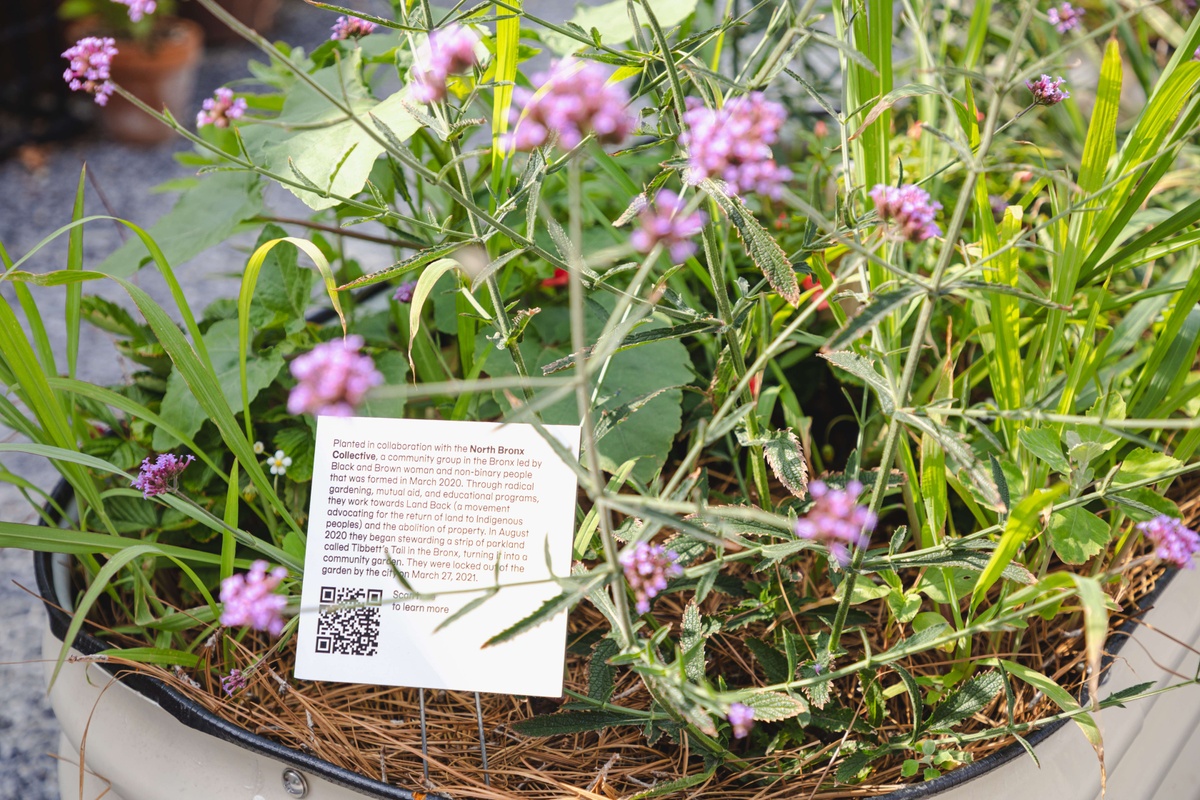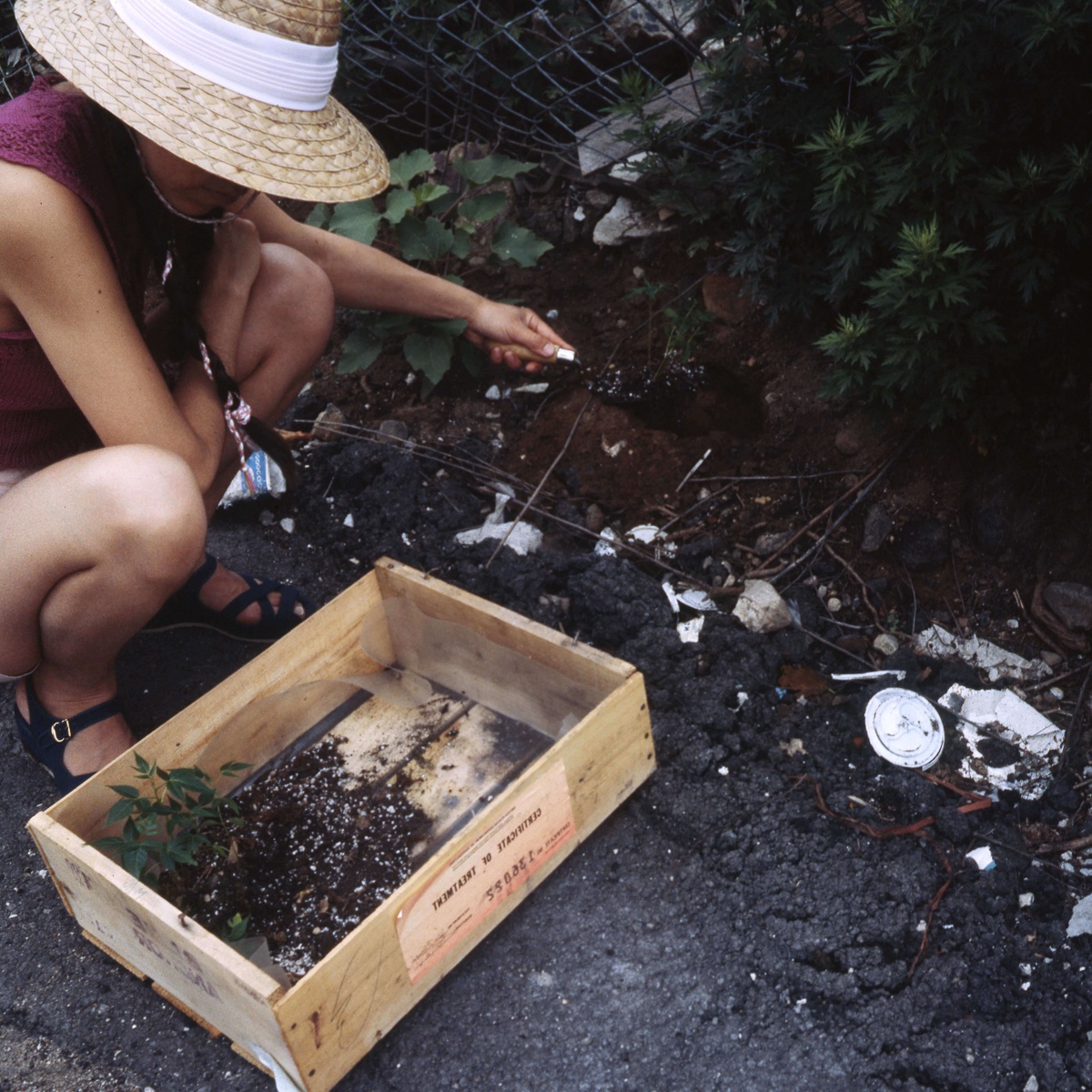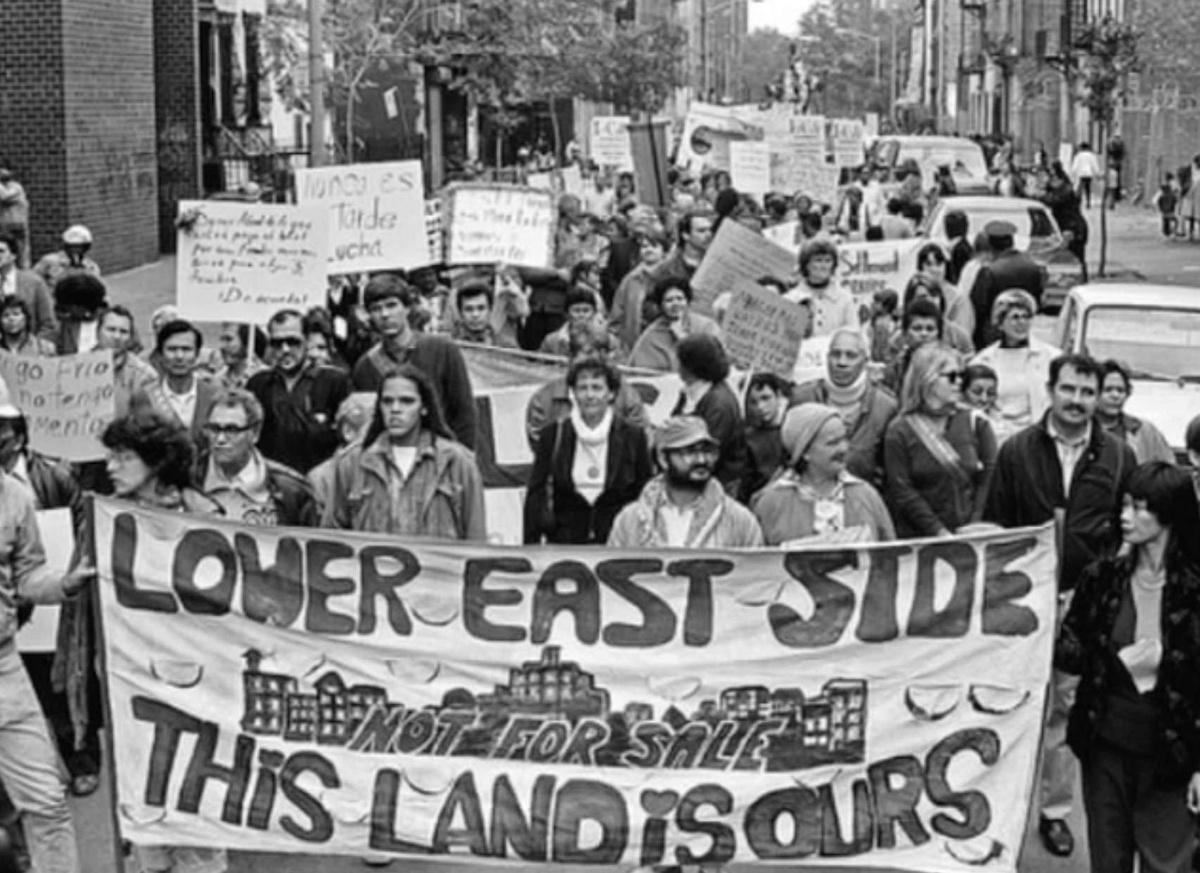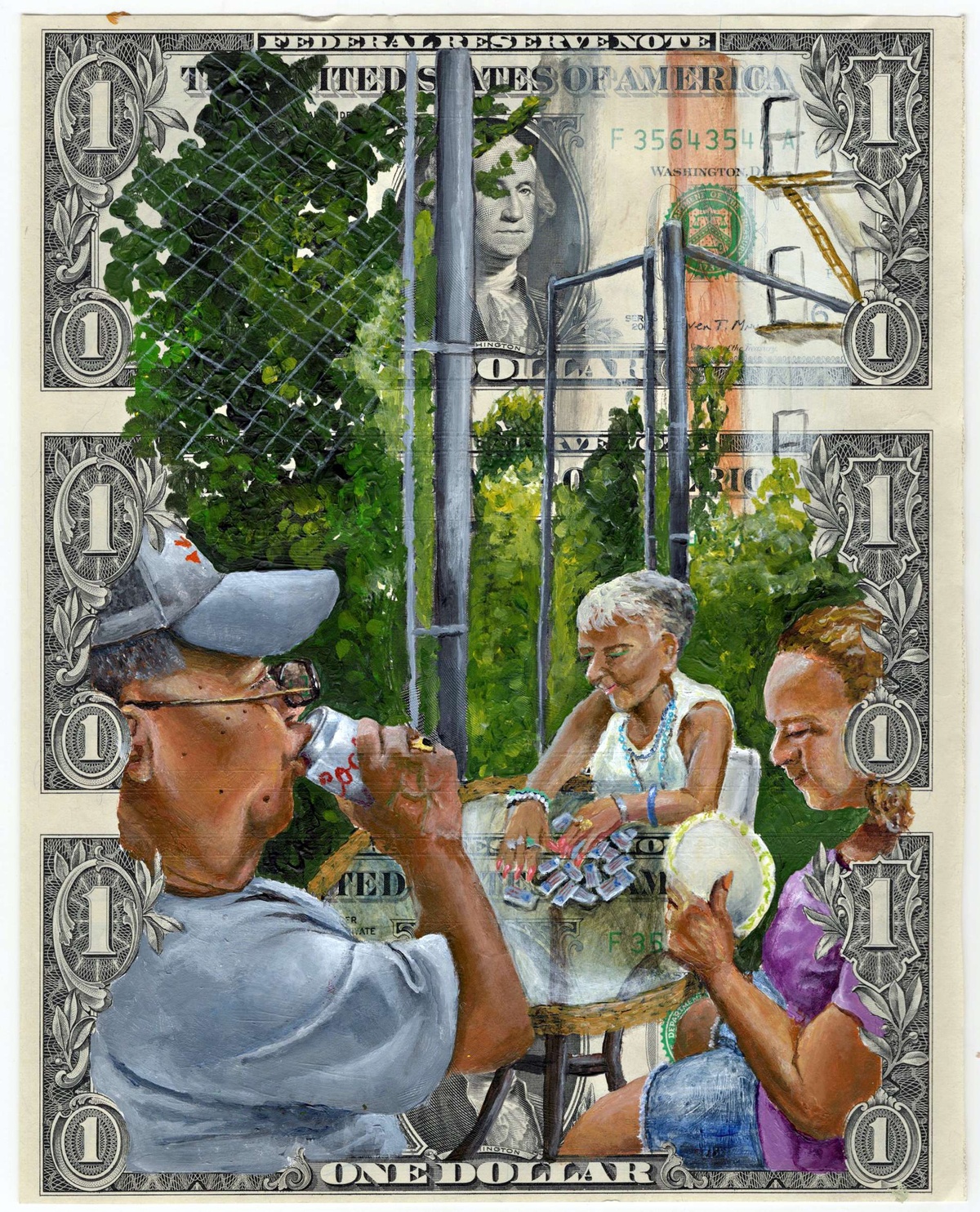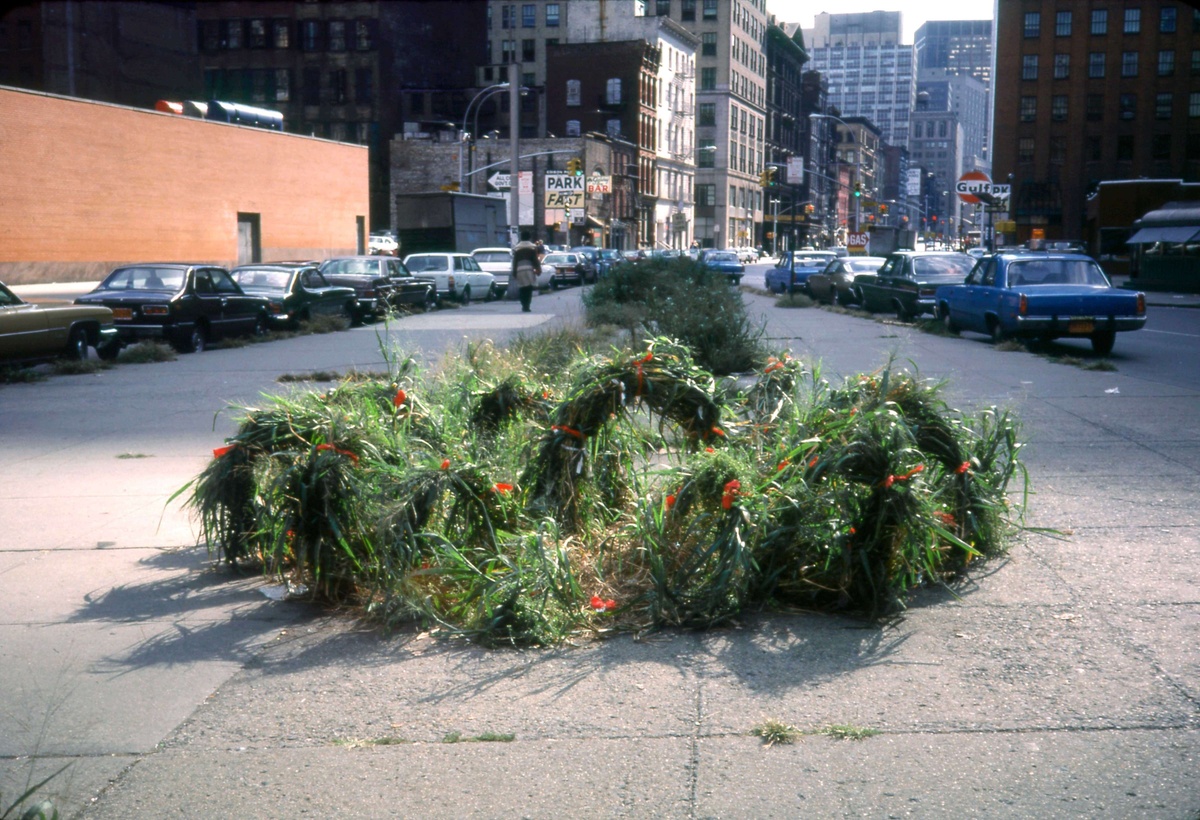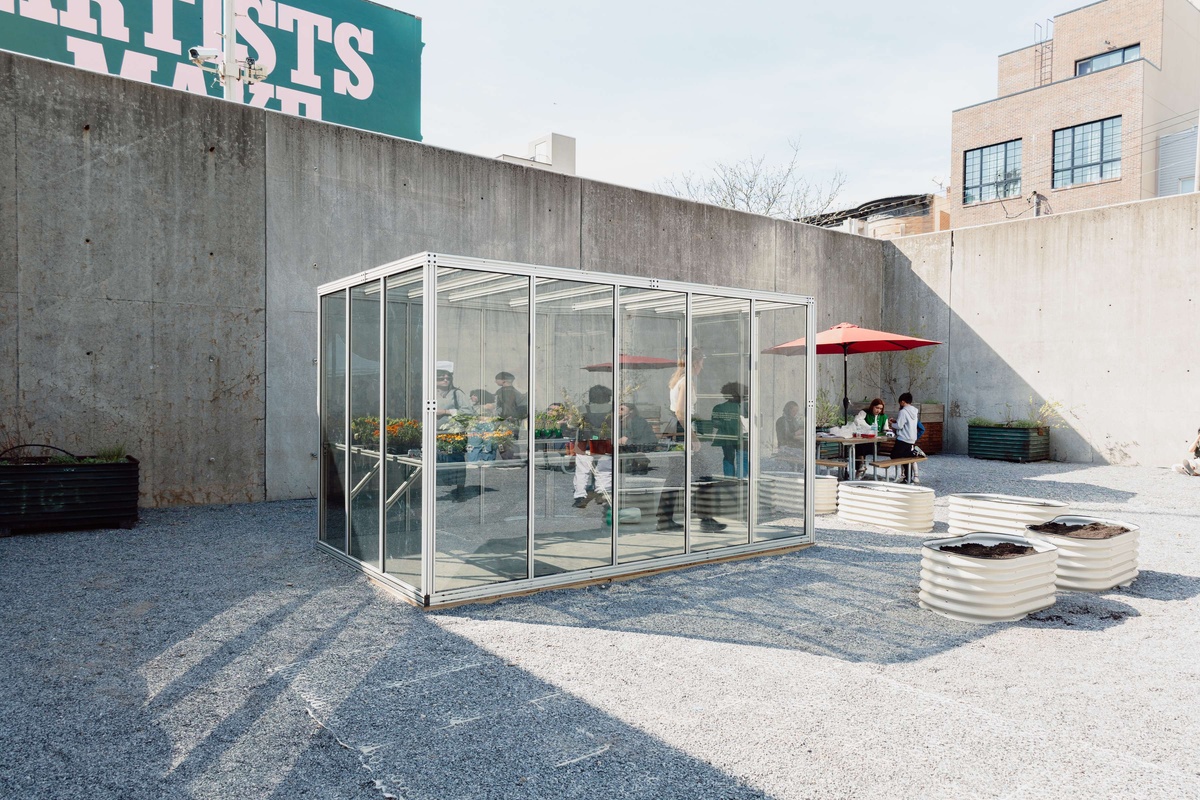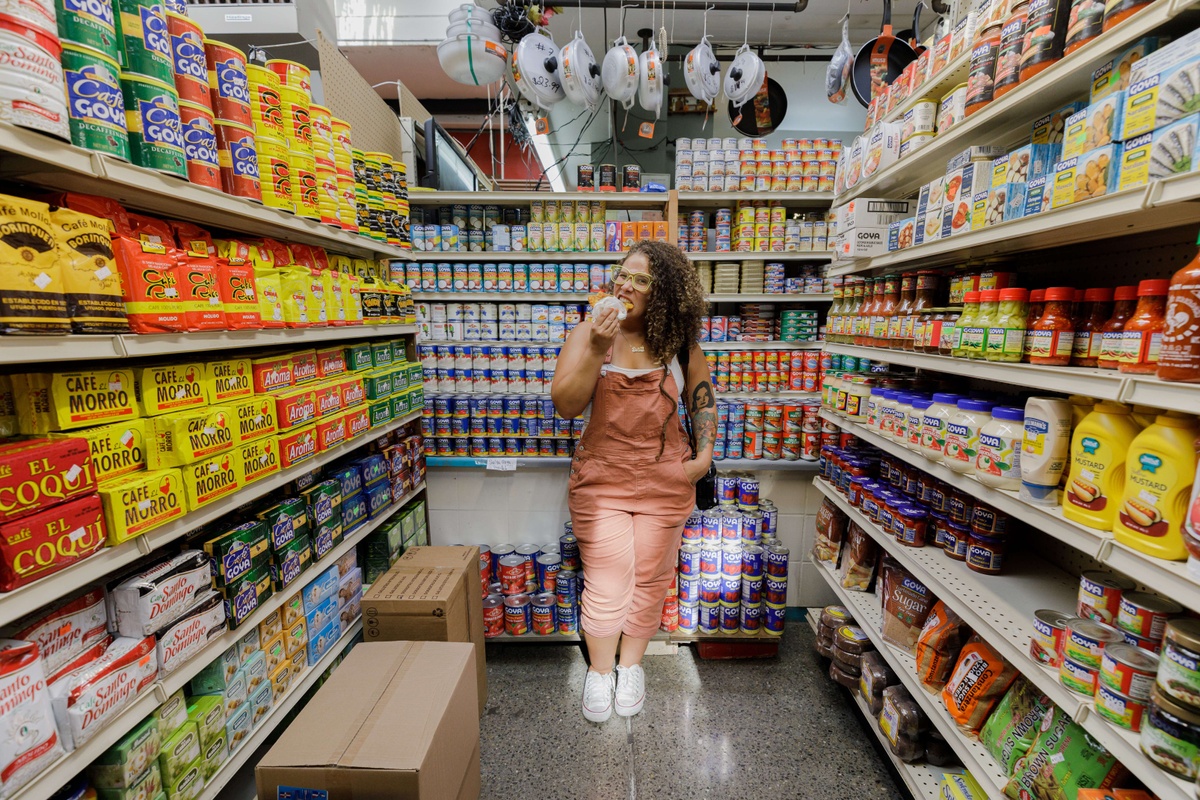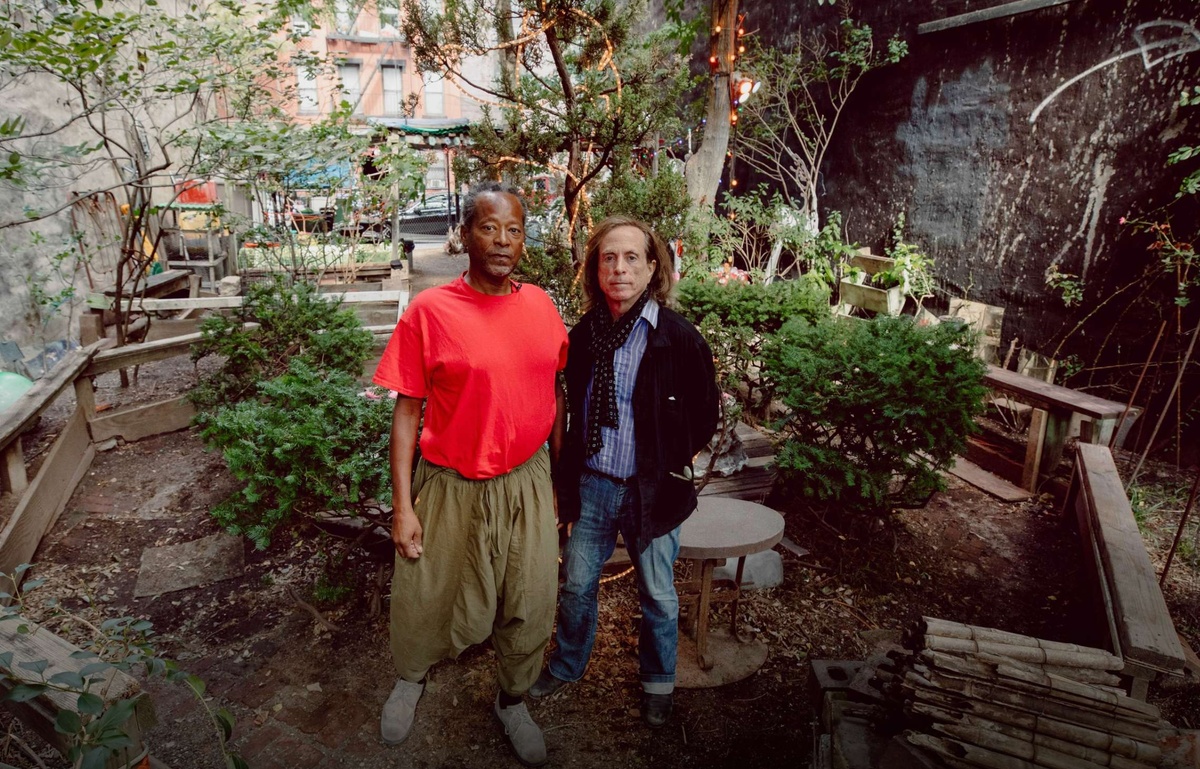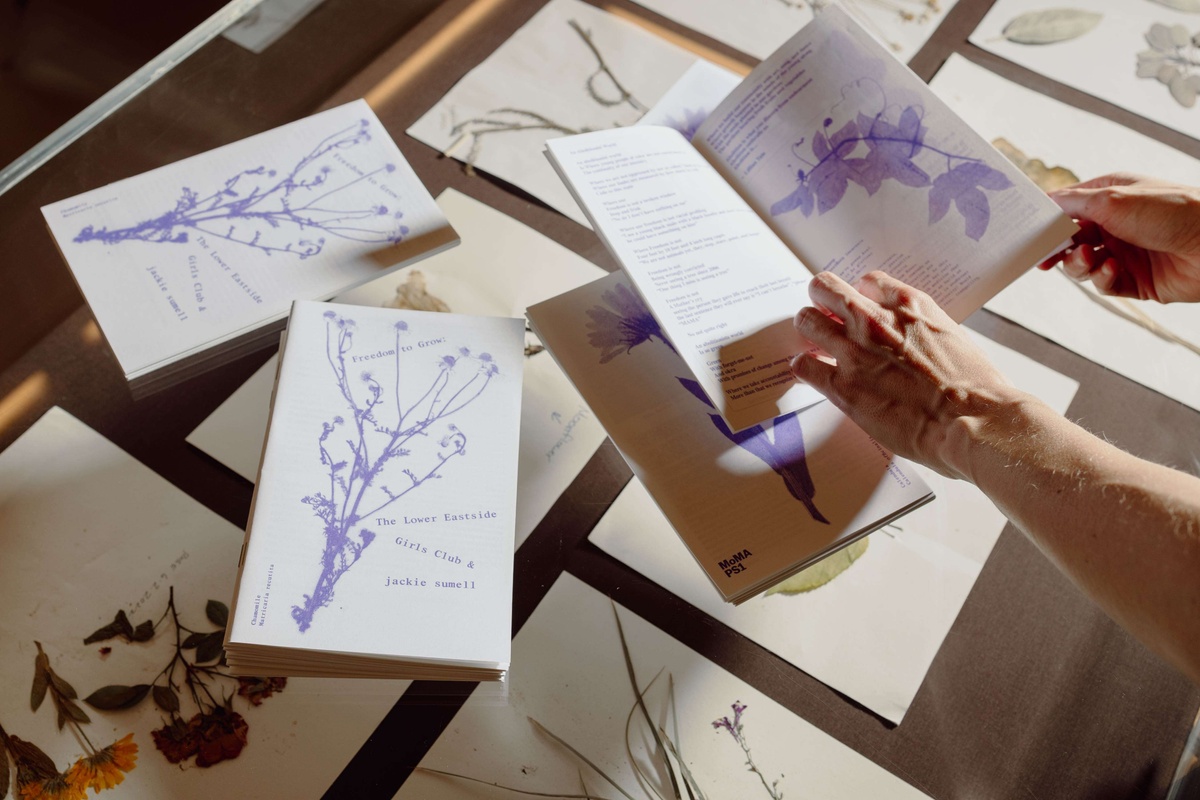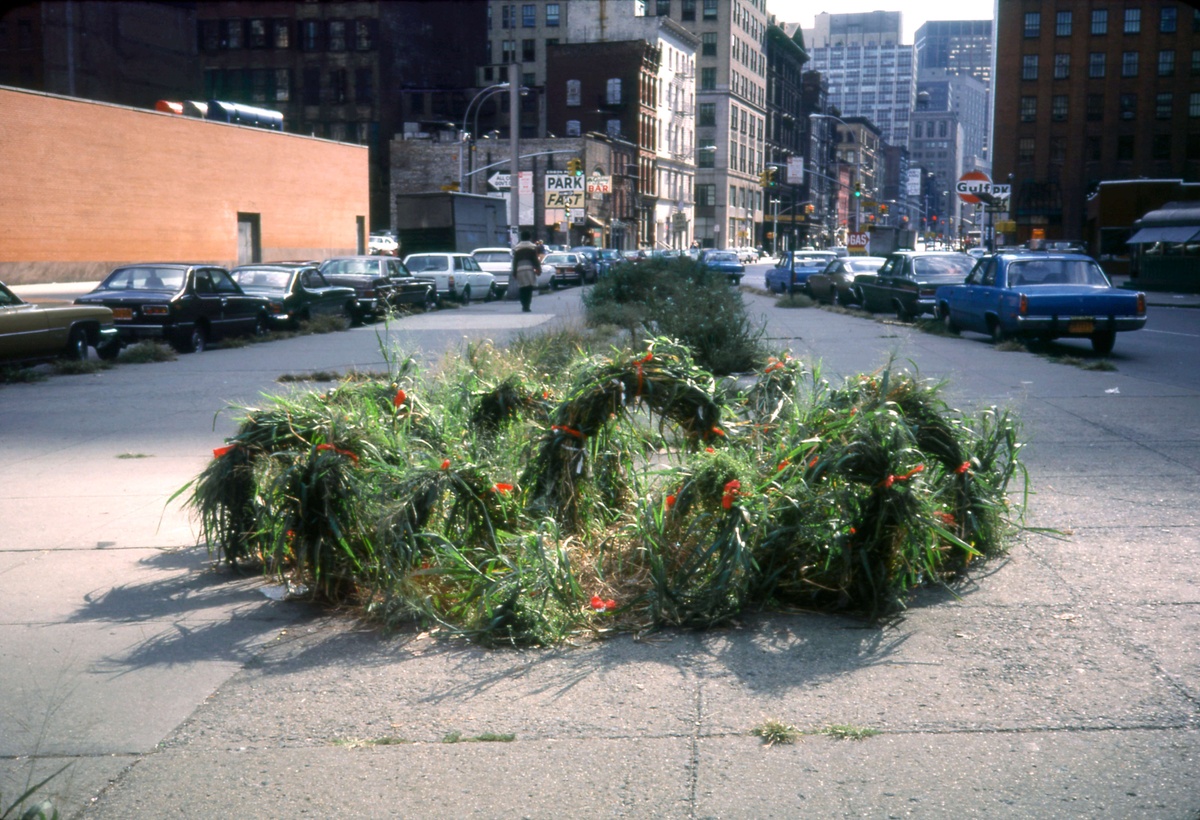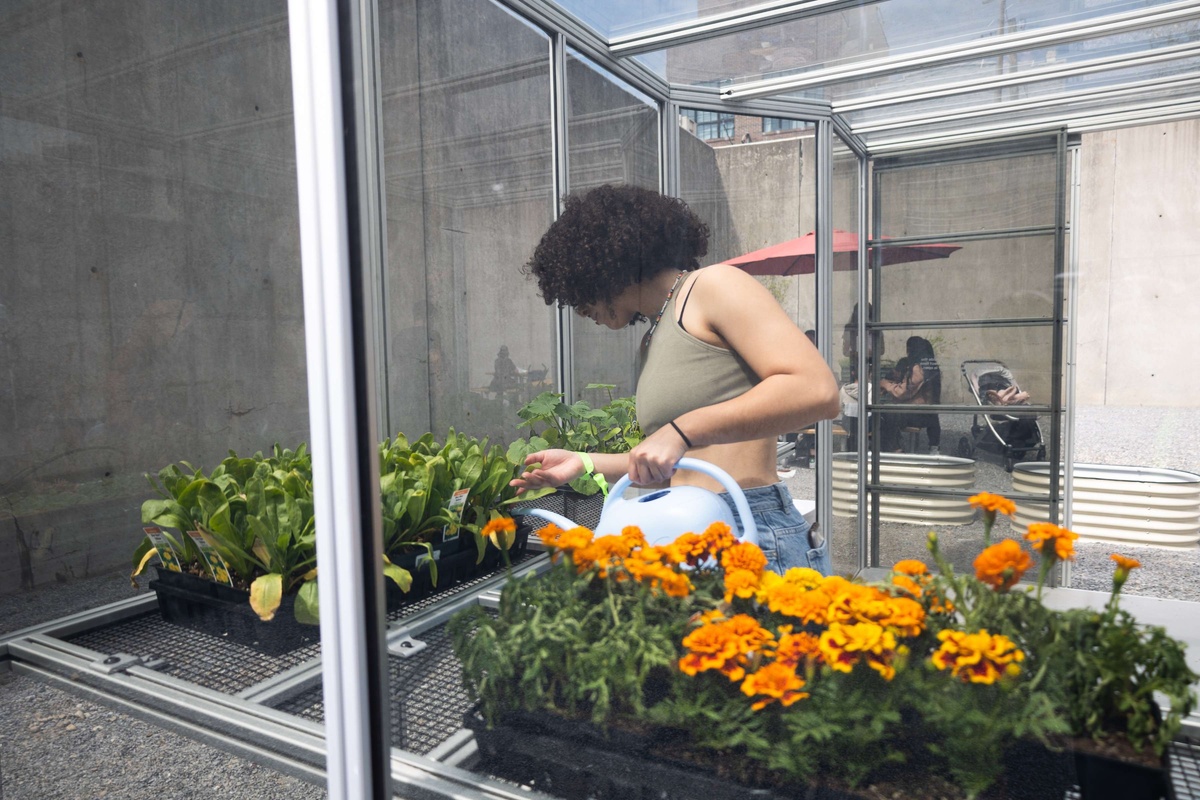Alicia Grullón:
My name’s Alicia Grullón and I’m an artist. I’m a lifelong New York City resident in particular here in the Northwest Bronx. And the North Bronx Collective is a collective of women and non-binary folks, specifically Black and Brown, who are stewarding land with the objective of Land Back and renaturation.
Francheska Alcantara:
My name is Francheska Alcantara. I am a member of the North Bronx collective. And along with my family I have been basically living in the North Bronx for over 20 years. And definitely my motivation in kind of like joining the collective and in coming together with the people that were working, it’s basically we came in trying to find solutions to the problems that arise with the pandemic, right? Coming together as sort of like governmental and local food pantries and people, politicians, were not really responding to the crisis.
Lucy Mercado:
Hi, I’m Lucy Mercado. I’m a lifelong resident of the Bronx. And I joined North Bronx Collective in 2020 as a way to be able to be able to provide for the community at the time when many food pantries, like 50% of the food pantries, were closed, leaving many people without adequate food when so many including myself were unemployed or underemployed.
Alicia Grullón:
And one of our overarching goals apart from mutual aid was thinking beyond mutual aid. And a lot of the work surrounding mutual aid was we found responsive, but also reactive, right? These are issues that in particular, poor and Black neighborhoods in New York city have been working through for decades, decades, decades, decades. It’s the resiliency that’s embedded in this country due to its history and specifically in New York city, looking at the history of community gardens. And it’s revolved around Black and Brown people.
Lucy Marcado:
I think that it definitely became a threat because it was people powered. It was empowered by any institutions, any non-for-profits. It was just completely grassroots. And it was during the time when all the protests were happening, post George Floyd and our vision was so that folks can have a healing space.
It’s a beautiful forest that was neglected. The closest forest to us is Van Cortlandt Park and Inwood Hill Park, but that’s not really accessible to everyone, especially like we’re just so disconnected from land in the city. And it’s designed that way on purpose. We’re literally starving. Even though the Bronx, it’s the most green space in New York city, most folks are starving of that connection.
Francesca Encantara:
I think in the way that sort of the collective has positioned themselves, so we have positioned ourselves, it has always been as a direct connection to earth and a connection also that is very much informed by already Asian knowledge from people that were here before us when Indigenous folk sort of like were, how do we approach our presence in the land? And how again rather than trying to, sort of take over or trying to exploit it, sort of having kind of this extractivism, right? In what ways are we able to live in balance kind of like with it?
Alicia Grullón:
We’re not concerned about profit. We’re not concerned about the up scaling of a neighborhood. We’re concerned about the immediate connection to us as human beings to the land, to be able to heal psychically, emotionally, physically. To be able to reconnect to these aspects of self that have been historically blocked out for many reasons that maybe we don’t have enough time here in this recording to review, but a lot of them have to do with the racial structures of this nation, with the economic structures of this nation.
Working with the land is a joyous, rewarding experience. But in order to get to that joy, the pain that this land has been through must be acknowledged and put in the center of these conversations. And that pain is directly linked to the experiences of Indigenous and Black people and working in any space without that direct, not just understanding, it’s not like an empty landing acknowledgement. It is a direct work towards repairing, actively repairing.
